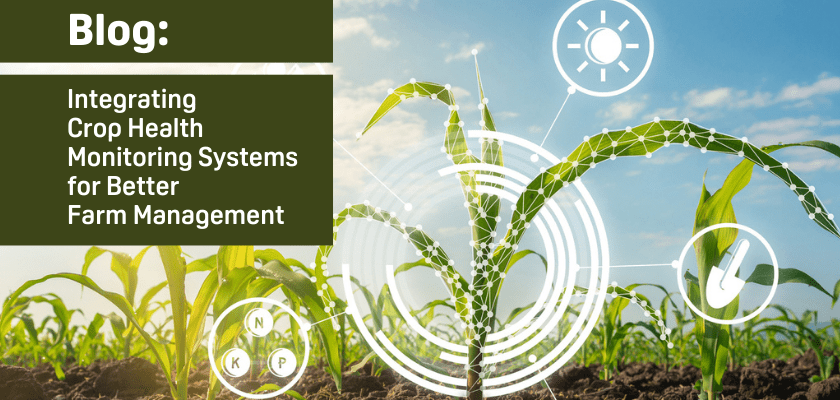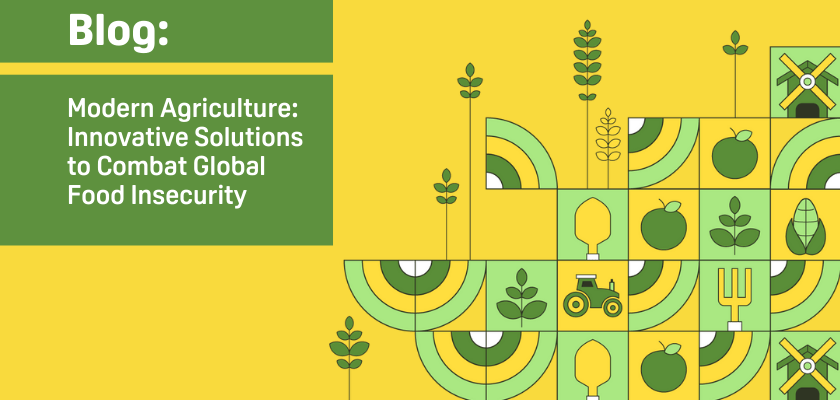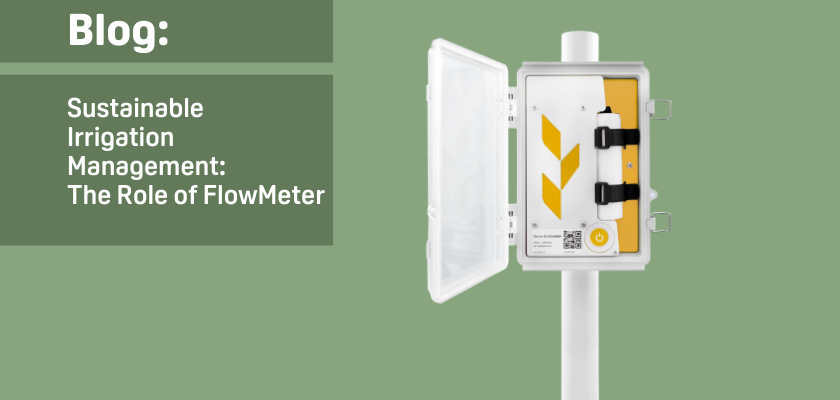

What is Agricultural Technology
Agricultural technology, or agritech, plays a crucial role in addressing the growing global demand for sustainable and efficient farming methods amidst rising populations and environmental concerns. Companies like Doktar are leading this revolution by integrating advanced technologies such as IoT, AI-driven analytics, and hyper-local weather data into farming operations.
Published on 08 May 2024
Agricultural technology, commonly known as agritech, encompasses applying technology to cultivate plants and raise animals more efficiently and sustainably. As the global population grows and environmental concerns increase, the demand for innovative solutions in agriculture has never been higher. From robotics and drones to genetic engineering and artificial intelligence, agricultural technology harnesses the power of advanced tools and techniques to revolutionize how we grow food, manage crops, and sustain agricultural ecosystems.
Doktar is at the forefront of the revolution in agriculture technology, utilizing a range of proprietary digital products and services to optimize agricultural operations. Integrating IoT devices, AI-driven analytics, and hyper-local weather data, Doktar's solutions enable farmers and agricultural businesses to make data-driven decisions that enhance productivity, improve resource efficiency, and reduce environmental impact. This fusion of technology in agriculture and traditional farming practices is pivotal in transforming farming into a more productive and sustainable industry, poised to meet the challenges of the 21st century and beyond.
Examples of Agricultural Technology
Agricultural technology spans a wide array of tools and systems designed to enhance the efficiency, productivity, and sustainability of agricultural operations around the globe. Here is an overview of some key examples from both Doktar and the wider industry:
· Precision Farming: This technique uses GPS tracking systems and IoT sensors to monitor field conditions, allowing for precise planting, fertilizing, and watering. This approach maximizes yield while minimizing waste and environmental impact. Doktar's Orbit app exemplifies precision farming by using satellite imagery to provide real-time crop monitoring and management.
· Automated Tractors and Drones: These are increasingly used for planting, spraying pesticides, and harvesting. Drones, for instance, are utilized for aerial crop monitoring and applying agricultural chemicals, which can drastically reduce the time and labor required compared to traditional methods.
· IoT and Sensor Technology: Doktar leverages IoT with products like Filiz, an agricultural sensor station that monitors environmental conditions such as soil moisture and temperature. Such technologies enable farmers to make informed decisions that optimize water usage and crop health.
· Digital Pest Management: Tools like Doktar’s PestTrap use AI to identify and count pests, helping farmers manage pest populations effectively without overuse of pesticides, which can harm the environment.
· AI and Machine Learning Models: AI is used to predict agricultural outputs, optimize supply chains, and manage resources. CropMap, another Doktar innovation, uses AI to detect field boundaries and monitor crop types, providing farmers with precise, actionable insights.
These agriculture technologies represent just a snapshot of the agritech landscape, which continues to evolve rapidly, offering new solutions that promise to transform agriculture into a more efficient, sustainable, and productive sector.
Benefits of Advances in Agricultural Technology
The advances in agricultural technology offer numerous benefits that span economic, environmental, and social aspects. These innovations transform the agricultural industry by making farming more precise, efficient, and sustainable. Here are some key benefits:
· Increased Efficiency and Productivity: Modern agricultural technologies significantly boost productivity by enabling precise farming techniques. For instance, Doktar's Orbit uses satellite imagery and AI to provide detailed insights into crop health and growth patterns, allowing for targeted interventions to prevent yield loss and enhance crop performance. This level of precision reduces the guesswork in farming, leading to better resource utilization and higher yields.
· Cost Reduction: Advanced agriculture technologies help reduce costs by optimizing the use of inputs such as water, fertilizers, and pesticides. Precision irrigation systems and soil moisture sensors, like those integrated in Doktar's Filiz sensor stations, ensure that water and nutrients are delivered efficiently and only where needed, minimizing waste and reducing the overall cost of materials and labor.
· Sustainability and Environmental Protection: Agritech plays a crucial role in promoting sustainable farming practices that reduce agriculture's environmental footprint. CropMap’s ability to monitor crop types and health helps implement crop rotation and other soil conservation techniques effectively. PestTrap's targeted pest management reduces the need for broad-spectrum chemical pesticides, which can harm beneficial insects and lead to pesticide resistance.
· Data-Driven Decision Making: Integrating AI and data analytics in agriculture has revolutionized how decisions are made on the farm. Farmers can now access real-time data and forecasts about weather, soil conditions, and crop health, which helps them make informed decisions quickly. This responsiveness not only boosts productivity but also enhances the ability to adapt to changing climatic conditions, ultimately reducing the risk of crop failure.
· Enhanced Market Access and Traceability: Agritech solutions also improve market access and traceability. Tools like CropMap provide insights into market trends and demand, enabling farmers to plan their crop production more strategically. Furthermore, the traceability offered by digital tools ensures food safety and quality, increasing consumer trust and opening up new markets for farmers.
· Social Benefits: By reducing the labor intensity of traditional farming practices, agricultural technology makes farming more appealing to the younger generation, helping to address labor shortages and support rural communities. Additionally, the increased efficiency and profitability of farming can elevate living standards and contribute to economic stability in rural areas.
The cumulative impact of these benefits is profound, making agricultural technology a cornerstone of modern agricultural strategies. By embracing these innovations, farmers and agricultural companies can not only improve their own outcomes but also contribute to a more sustainable and food-secure world.
Creating Change Through Technology
Agricultural technology is not just revolutionizing farming practices; it is also driving significant change in the broader economic and social landscapes, particularly in developing regions. The impact of such technologies extends beyond individual farms, influencing entire communities and industries. Here are several ways agricultural technology creates meaningful change, particularly in the context of Corporate Social Responsibility (CSR) projects and B2B sales:
· Empowering Smallholder Farmers: In many parts of the world, smallholder farmers are crucial to local food security but often lack access to advanced tools and technologies. Agritech solutions like those provided by Doktar can bridge this gap by offering scalable technology that enhances productivity and sustainability. For instance, Orbit's field scouting capabilities can be deployed on small farms to optimize resource use and improve crop management without the need for large capital investments.
· Enhancing Food Security: By increasing the efficiency and reliability of food production, agricultural technology plays a key role in enhancing food security by increasing the efficiency and reliability of food production. Accurate data collection and analysis, as enabled by CropMap, assist in predicting crop yields and identifying potential food shortages before they become critical, allowing governments and organizations to take proactive measures.
· Driving Economic Growth: Agritech can stimulate economic growth by increasing the profitability of farming. This is particularly significant in rural areas where agriculture is often the main source of income. Technologies that improve crop yields and reduce losses, such as Filiz and PestTrap, directly contribute to farmers' higher earnings.
· Promoting Sustainable Practices: Technology-driven farming solutions are key to promoting sustainable agricultural practices that minimize environmental impact. Doktar’s technologies help manage water use, optimize fertilizer application, and reduce the need for chemical pesticides, which in turn supports biodiversity and reduces carbon footprints. These practices not only align with environmental CSR objectives but also appeal to eco-conscious consumers and stakeholders.
· Building Resilience to Climate Change: Agritech enables farmers to adapt to and mitigate the impacts of climate change. Tools that provide early warnings for weather events track soil moisture levels and monitor crop health. This helps farmers adjust their practices in response to climatic variations, making their operations more resilient and reducing the risk of crop failures.
· Facilitating Data-Driven Policy Making: Technologies like CropMap can inform policy decisions at the governmental and corporate levels by providing detailed and accurate agricultural data. This data is essential for designing effective agricultural policies, subsidies, and support programs that address the specific needs of different regions and crop types.
· Enhancing Corporate Social Responsibility: Companies investing in agricultural technologies for CSR initiatives demonstrate their commitment to sustainability and innovation. Such investments not only enhance their brand image but also contribute to long-term social and environmental benefits. Doktar's collaborations with major corporations in implementing sustainable agriculture projects serve as excellent examples of how technology can be used to achieve CSR goals, enhance B2B relationships, and foster a positive corporate identity.
Through these various channels, agricultural technology catalyzes change that extends far beyond improved agricultural outputs. It supports a transformation towards more sustainable, resilient, and equitable food systems, presenting a compelling case for B2B engagements and partnerships in CSR projects.
As agricultural technology continues to evolve, its impact stretches far beyond the fields. It is shaping a future where farming is not only more efficient but also inherently sustainable, capable of meeting the global demands of the 21st century. By investing in and adopting the latest agritech innovations, farmers and agricultural businesses are not just preparing for the future, but they are shaping it, ensuring that the agricultural sector remains robust, sustainable, and productive. For those interested in exploring how Doktar's innovative solutions can transform your agricultural practices, visit our website for detailed information on all our products. Stay updated with the latest developments by following us on Instagram and LinkedIn, where we share insights, tips, and updates about our technologies and their impact on modern farming.

Integrating Crop Health Monitoring Systems for Better Farm Management
Crop health monitoring systems revolutionize modern agriculture by enabling real-time insights into plant health, reducing losses, and promoting sustainability. Tools like Doktar’s CropMap and Orbit integrate advanced technologies, empowering farmers with data-driven decisions. By enhancing efficiency and sustainability, these systems are essential for future-proofing agricultural operations.

Modern Agriculture: Innovative Solutions to Combat Global Food Insecurity
Modern agriculture combats global food insecurity with precision agriculture, sustainable practices, and biotechnology. Tools like IoT, automation, and crop innovations optimize resource use, enhance resilience, and ensure stable food supplies. By integrating smart technologies, agribusinesses address challenges like climate change and resource scarcity, paving the way for a sustainable food future.

Sustainable Irrigation Management: The Role of FlowMeter
Flow meters transform irrigation by enabling precise water measurement, reducing waste, and optimizing crop yields. Tools like Doktar’s FlowMeter empower farmers to enhance water-use efficiency, conserve resources, and lower costs. By integrating flow meters into modern farming, agribusinesses achieve sustainable irrigation solutions, address environmental challenges, and ensure long-term agricultural resilience.
